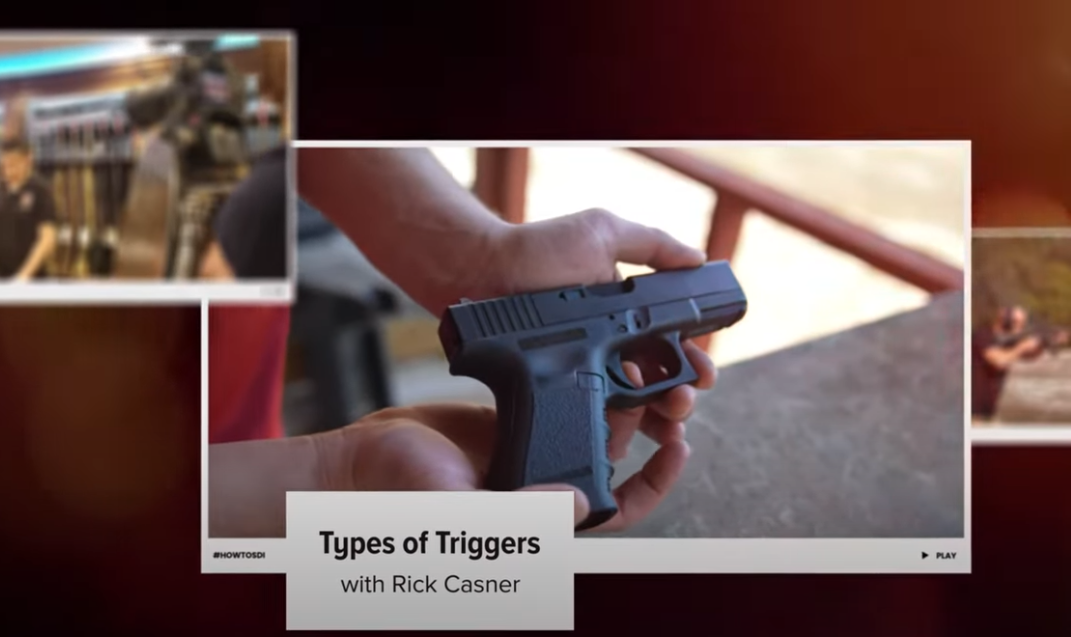Top 10 Frequently Asked Questions and Their Answers, According to the ATF, Part 1
- Joey Upper
When it comes to the Bureau of Alcohol, Tobacco, Firearms and Explosives, folk in the firearms community tend to have very strong opinions.
There’s good reasons for that — their actions can drastically effect the shooter’s day-to-day life, take for example the ATF’s decisions concerning pistol braces.
They are frequently disparaged, but as Sonoran Desert Institute’s Master Gunsmith Kip Carpenter notes in the webinar “Starting a Gunsmithing Business”, he’s had a tremendous experience with the organization.
No matter how hot or cold your emotions run, however, there is no question that the men and women at the ATF field a boatload of questions about guns on a regular basis.
So, what are the most common questions?
This article is the first of a two-part series on the ten most-asked questions to the ATF. We’re breaking it down because if folks all across the country are asking these questions, odds are good you’ll catch one you were wondering, too.
Let’s dig in!
1. Can a person prohibited by law from possessing a firearm acquire and use a black powder muzzle loading firearm?
Now, I’m not a felon — and I don’t really plan on being one in the future, but I will admit that this is a question I have wondered more than once.
Surprisingly, the answer is yes!
Federal law does not prohibit these persons from possessing or receiving an antique firearm. The term “antique firearm” means any firearm (including any firearm with a matchlock, flintlock, percussion cap, or similar type of ignition system) manufactured in or before 1898.
I will admit, that’s not how I expected the ATF to respond on that. However, it does make sense. You can get muzzleloaders shipped right to your door (at least you can here in North Carolina), and trying to track them would be a logistical nightmare.
Keep in mind, however, that we’re talking on the federal level — state government can come into play.
Finally, even though a prohibited person may lawfully possess an antique firearm under Federal law, State or local law may classify such weapons as “firearms” subject to regulation. Any person considering acquiring a black powder weapon should contact his or her State Attorney General’s Office to inquire about the laws and possible State or local restrictions.
Always check your local laws!
2. May I lawfully transfer a firearm to a friend who resides in a different State?
Short answer — no, you can’t — at least you can’t without the involvement of an FFL. As much as you may want to, you have to pay that transfer fee — it’s a small price to pay to stick to the right side of the law. As the ATF notes:
Under Federal law, an unlicensed individual is prohibited from transferring a firearm to an individual who does not reside in the State where the transferee resides. Generally, for a person to lawfully transfer a firearm to an unlicensed person who resides out of State, the firearm must be shipped to a Federal Firearms Licensee (FFL) within the recipient’s State of residence.
As tempting as it may be to send a firearm to John Doe a few hundred miles away, take the time to ship it right, with an FFL.
3. May I lawfully transfer a firearm to a resident of the same State in which I reside?
Yes — yes you can! However, you can’t transfer a firearm to someone who can’t legally possess one — take the felon from Question 1, for example. You can’t sell him your .380 because you are all about .45 ACP now, now matter how much he wants to strike a deal!
Any person may sell a firearm to an unlicensed resident of the State where he resides as long as he does not know or have reasonable cause to believe the person is prohibited from receiving or possessing firearms under Federal law. There may be State laws that regulate interstate firearm transactions.
As always, check your local laws for interstate firearm transactions, or any other question you have in terms of firearms legality.
4. How do I register my firearm or remove my name from a firearms registration?
Good news for you — and most of you firearms community veterans already know this — there’s no Federal registration requirement unless we’re talking SBR’s, machine guns, and the like.
There is no Federal registration requirement for most conventional sporting firearms. Only those firearms subject to the National Firearms Act (NFA) (e.g., machineguns, short-barrel firearms, silencers, destructive devices, any other weapons) must be registered with ATF.
That’s one less thing on your plate!
5. Does ATF issue a Concealed Carry Permit (CCP) that authorizes a person to carry a firearm throughout the United States?
As much as some of us (me included!) may want a national concealed carry permit of some form or other to be an institution of this great nation, it’s not.
At least not yet. A guy can dream, can’t he?
Neither ATF nor any other Federal agency issues such a permit or license. CCPs may be issued by a State or local government.
What do you think about these questions? Please share this on Facebook and Twitter and let us know!


